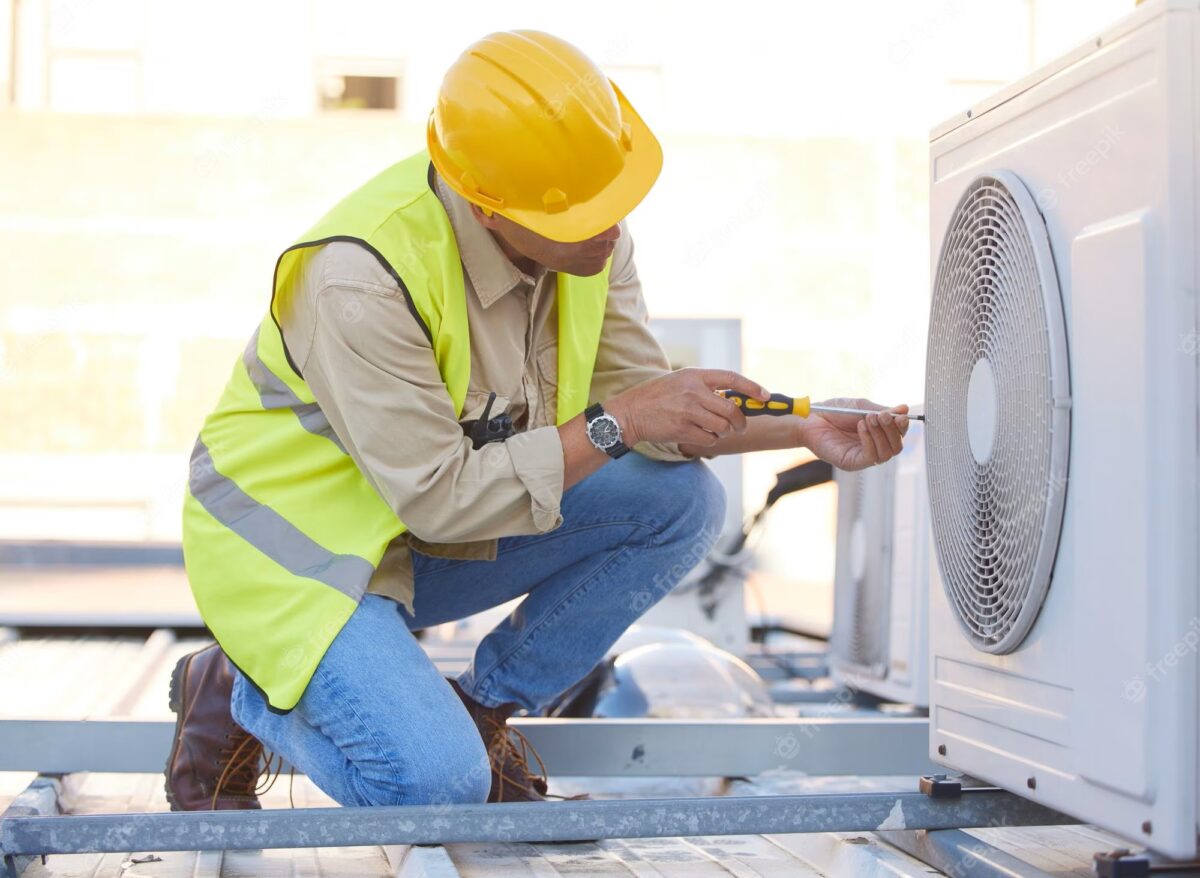Debunking Myths: What St. Louis Homebuyers Need to Know About Inspections

Purchasing a home is one of the biggest financial decisions you’ll make in life. Obtaining a professional home inspection gives buyers objective insights into the home’s condition from an unbiased expert. However, many myths and misconceptions about home inspections lead some buyers to waive this incredibly valuable service.
Let’s debunk some common myths about home inspectors in St. Louis so you can make an informed decision as a homebuyer.
Inspectors Only Check Surface-Level Issues
False! Competent inspectors thoroughly examine both visible and functional aspects of the home using advanced techniques and tools. While they don’t dismantle systems, quality inspectors check:
- Structural foundation, framing, windows, doors, and roof for defects
- The electrical system and all outlets using outlet testers
- Plumbing supply and drainage lines, water pressure, water heater, fixtures
- HVAC system including heating/cooling equipment, thermostats, ductwork
- Attic insulation, ventilation, rafters
- Walls, ceilings, and floors for signs of water damage or pest infestation
- Septic tank or sewer drainage system
- Built-in appliances like oven, dishwasher, and garbage disposal
- Smoke detectors, and carbon monoxide detectors for proper placement/function
- Garage door operators, exterior components like siding, lighting
- Pool/spa equipment, fences, drainage
- And 150+ additional items
Reputable inspectors use high-tech tools like moisture meters, thermal imaging cameras, and CO testers. They check the functionality of systems in addition to physical defects. Poor inspectors may only do a cursory visual inspection, so choose carefully.
Inspectors Work for the Seller
False! Home inspectors work for buyers, not sellers or real estate agents. They have no conflicts of interest that could impact their objective assessment of the home’s condition.
The inspector’s loyalty lies with the buyer. They want to provide an accurate, independent evaluation to protect the buyer’s interests. Some sellers even refuse to be present during inspections to allow the inspector to communicate concerns freely.
Inspections Aren’t Needed on New Construction
FALSE! This dangerous myth leaves many new construction buyers with costly surprises. New homes absolutely should be inspected from top to bottom.
New construction inspections focus on:
- Quality of materials, proper installation, craftsmanship
- Compliance with building codes
- Foundation settling or cracks
- Doors/windows not opening or closing properly
- Defective fixtures, appliances, or finishes
- HVAC system functioning
- Electrical issues like faulty wiring or grounding
- Plumbing leaks or drainage issues
- Missing insulation
- and more
Inspectors know what to look for and can identify flaws the average homeowner would easily miss. Don’t assume it’s flawless just because it’s newly built.
Minor Cosmetic Issues Won’t Show on Inspection Reports
False! Comprehensive inspection reports WILL identify minor flaws and cosmetic issues in addition to major system defects. Skilled inspectors look at the home thoroughly from multiple angles to catch all visible defects.
Minor issues that will get flagged include:
- Cracks in walls, ceilings, foundations
- Doors/windows sticking or not operating smoothly
- Siding damage
- Stains on walls, ceilings, or around windows indicating leaks -evidence of pests like clusters of wasp nests
- Rotting wood
- Exposed wiring -Gaps in insulation
- Faulty outlets -and many more small issues
These may seem insignificant but often can turn into larger problems if left unaddressed. Inspection reports give the full picture, not just the major red flags.
Inspectors Can Find Every Possible Defect
This is false. Inspectors provide an educated OPINION based on a visual inspection at the time. They cannot catch every latent defect or thing that could go wrong in the future. For example, inspectors can’t predict if:
- The roof will leak in heavy rain two months later
- The AC unit will fail due to age a year later
- The foundation will crack from settling years down the road
- Plumbing lines will develop leaks over time
- Electrical wiring will eventually need to be replaced
Inspectors cannot dismantle things or do invasive testing. They can only document issues visible or detectable on the day of inspection. They cannot guarantee the home will be problem-free for years.
Inspectors Are Responsible for Repairs
False. The inspector’s role is to provide objective insights into the home’s condition on inspection day – not take responsibility for repairs.
If the inspection uncovers deficiencies, it is the buyer’s job to request the seller remedy these issues before closing. Or adjust the offer price to account for needed repairs.
The inspector simply identifies problems. They don’t fix them or bear financial responsibility for repairs. However, a quality inspector does provide repair advice and suggestions.
Waiving Inspection is Okay to Make a Strong Offer
Extremely dangerous myth! Waiving your right to a home inspection may get your offer accepted, but puts you at huge risk. Never waive the inspection contingency without full awareness of the pitfalls, such as:
- Potentially buying a “money pit” filled with hidden defects
- No third-party verification the home is sound and valued correctly
- Lack of objective insights that could impact your decision
- Safety hazards and code violations may go undiscovered
- Missing seller misrepresentations or concealment of problems
- No negotiating power to request repairs from the seller
- Uninformed decision-making on the largest purchase of your life
In hot markets, some buyers do waive inspections to be competitive. But this is an incredibly risky move that forfeits your right to make an informed decision. Avoid waiving inspections at all costs.
Inspections Aren’t Needed on Homes Under 10 Years Old
False! The age of the home does not determine whether an inspection is advisable. Even newer homes can disguise issues like:
- Improper materials or poor craftsmanship
- Foundation settling or cracks
- Leaks causing water damage or mold
- HVAC, electrical, or plumbing defects
- Pest infestation
- Safety hazards
- Code violations
Age is irrelevant. A home inspector provides peace of mind and protects buyers from unwelcome surprises – on any age home.
Realtors Can Spot All Defects
While real estate agents strive to represent their client’s best interests, they are not trained like home inspectors to identify hidden defects. Agents focus on marketing, paperwork, and transaction details – not conducting comprehensive, unbiased property condition evaluations.
Some key flaws real estate agents may miss:
- Small foundation cracks indicate settling
- Improper electrical wiring and junctions
- Evidence of leaking around windows or plumbing fixtures
- Poor quality HVAC installations
- Outdated and dangerous knob & tube wiring behind walls
- Pest damage or rot in attic, crawlspace areas
Don’t rely on agents to spot issues a trained home inspector will catch. Work with both for a complete perspective.
Inspections Are Too Expensive
A professional home inspection costs on average $300-$500 for a typical St. Louis single-family home – a small price considering it protects one of your largest investments.
Consider the potential costs of failing to get an inspection:
- Surprise repairs cost thousands if undisclosed problems exist
- Paying more than the home is worth if defects point to a lower value
- Costly structural repairs if the foundation, roof, or other core systems issues are missed
- Having to rewire or replumb if serious issues are discovered completely
View the inspection cost as an investment that often returns 10X the price in peace of mind and financial protection. Don’t let the expense deter you from making the wise choice.
The Bottom Line
Don’t let myths and misconceptions deter you from hiring a professional inspector when buying a St. Louis home. A quality inspection is one of the best investments you can make to gain objective insights, protect your interests, and avoid expensive surprises down the road.









